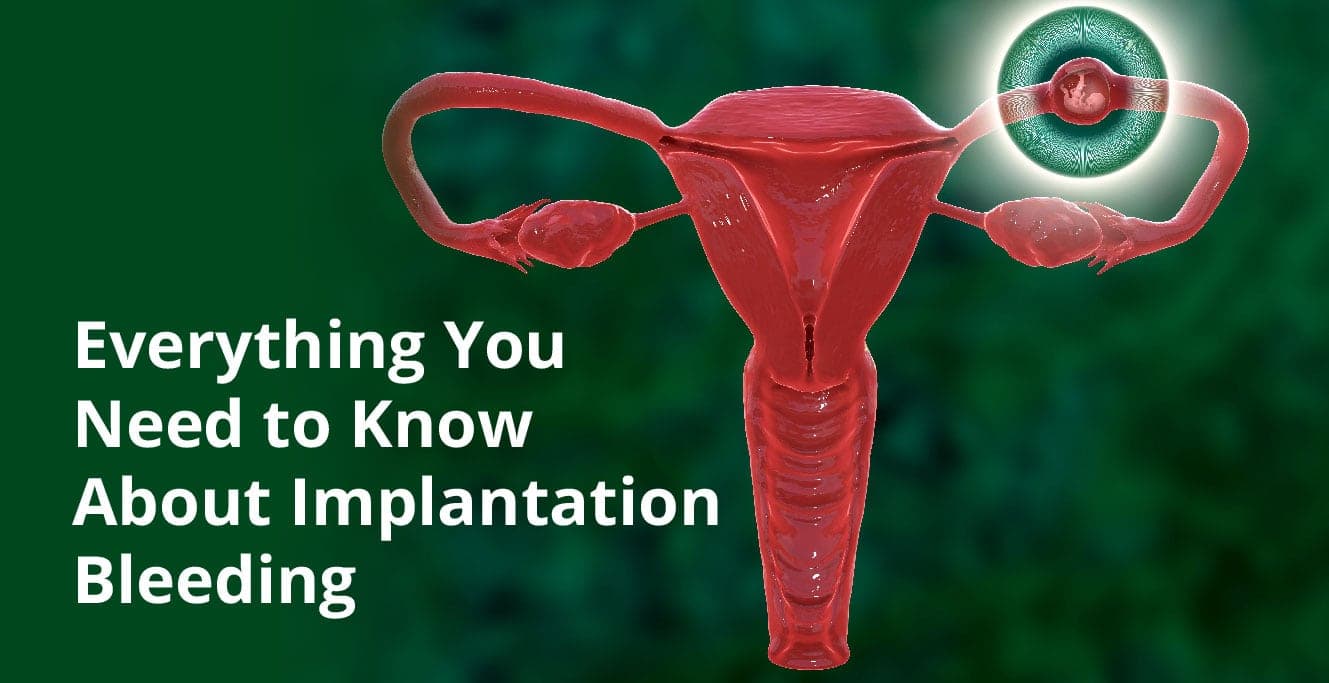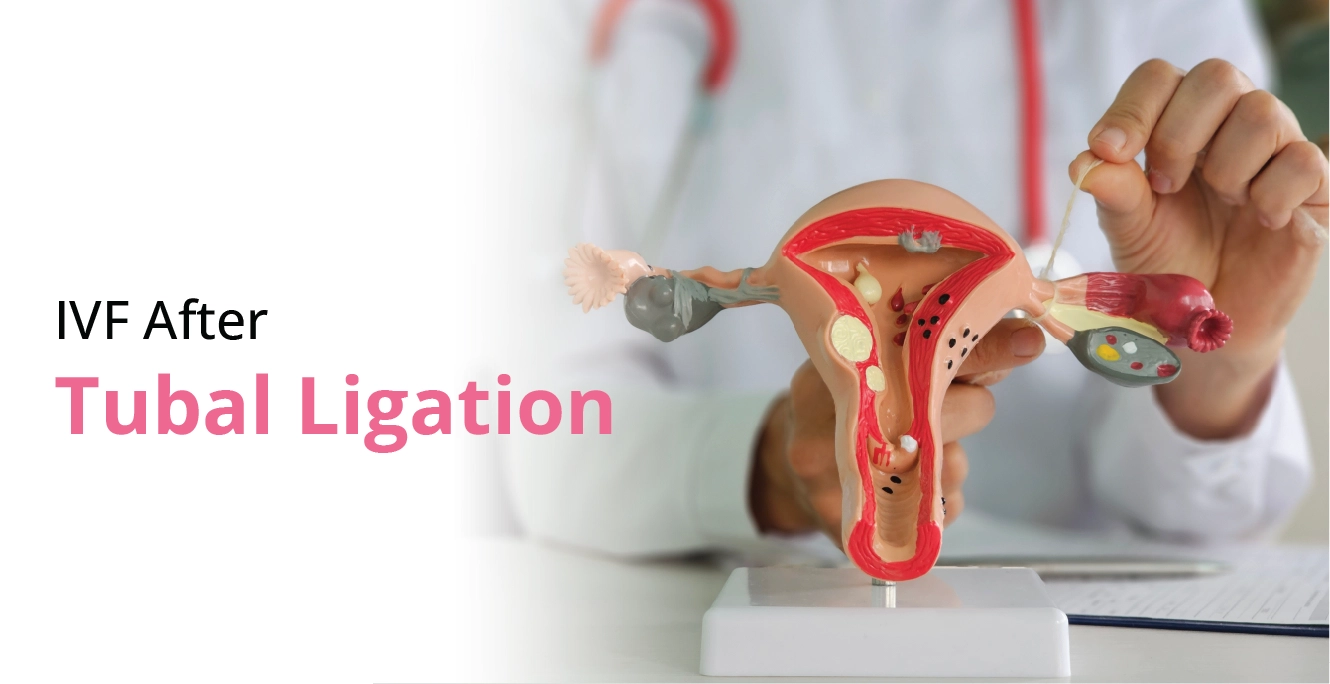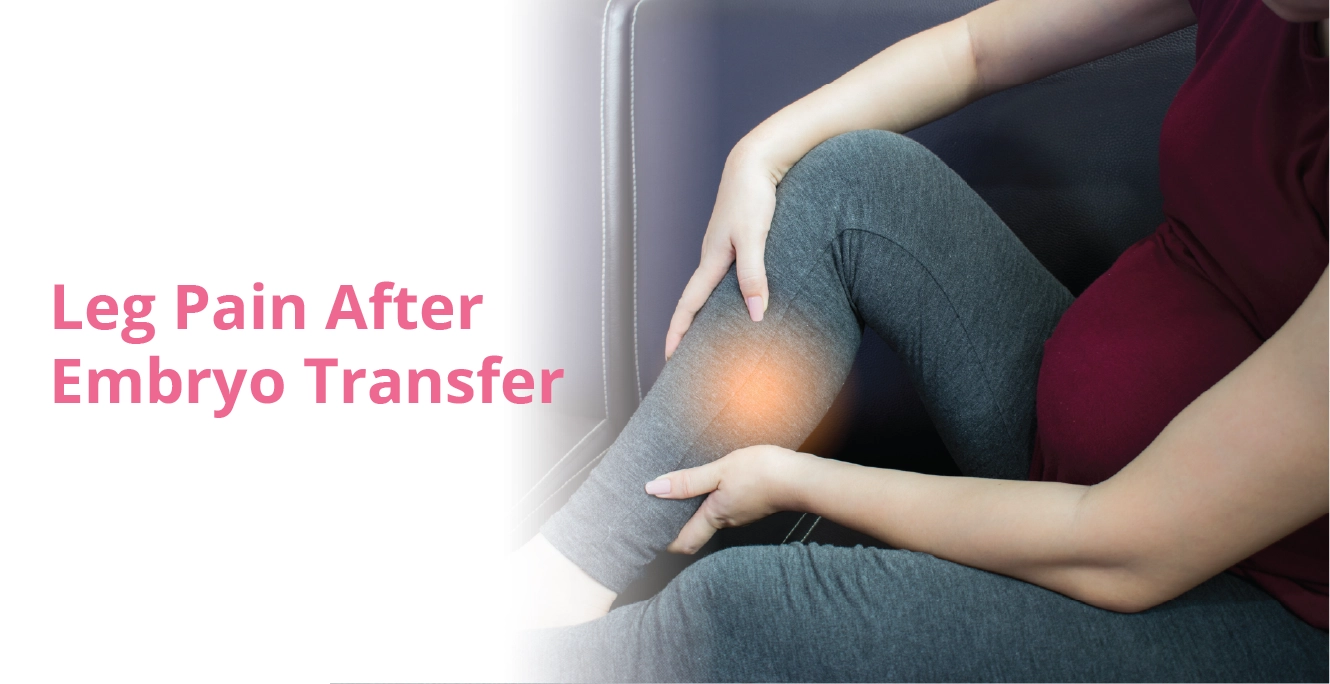
Implantation Bleeding: Causes and Symptoms

Table of Contents
- What is Implantation Bleeding?
- How Common is Implantation Bleeding?
- Implantation Bleeding Timing: When Does It Happen?
- Signs and Symptoms of Implantation Bleeding
- Difference Between Implantation Bleeding and Period Bleeding
- Ovulation Bleeding vs Implantation Bleeding
- Period bleeding vs Implantation Bleeding
- How To Recognise Implantation Bleeding?
- How Long Does Implantation Bleeding Last?
- Is Implantation Bleeding a Sign of Pregnancy?
- Signs of Successful Implantation without Bleeding
- Implantation Bleeding and Pregnancy Test: When Should You Take It?
- Can Implantation Bleeding be a Sign of Something Else?
- When Should I Consult a Doctor?
- Conclusion
- FAQs
When you’re trying to conceive, every change in your body can seem like a big deal. You might try to figure out if they’re early signs of pregnancy, which can lead to a mix of excitement and anxiety.
However, there are cases in which women notice blood spots and suddenly switch into panic mode or assume that they’re not pregnant. You can be mistaken over here. There are various reasons for light spotting, and most of the time it is implantation bleeding. Women often mistake this for menstrual bleeding.
In this blog, we will explore what implantation bleeding is, the early signs of pregnancy, and how you can differentiate between period bleeding and implantation bleeding.
What is Implantation Bleeding?
Implantation bleeding is light spotting that occurs when a fertilised egg attaches to the lining of the uterus. It is a relatively common experience for women that typically occurs after 6-12 days of conception and is often mistaken for a light period.
It usually lasts only 1-2 days and is much lighter than a regular menstrual period. Implantation bleeding can be an early sign of pregnancy, but it does not always mean that a woman is pregnant. While some may experience implantation bleeding, others may not notice any signs.
At times, there are other possible causes of spotting or light bleeding, such as hormonal imbalances, changes in birth control, or an infection.
How Common is Implantation Bleeding?
Around 1 in 4 pregnant women experience implantation bleeding. Don’t worry if you don’t see any spotting. It doesn’t mean you’re not pregnant. Most women who conceive don’t have any spotting at all.
Implantation Bleeding Timing: When Does It Happen?
If you are curious about when implantation bleeding occurs, then, like we mentioned earlier, it usually happens about 10-14 days after ovulation. It is when the egg that’s been fertilised travels down to your uterus. This process is called implantation, and it’s when the egg embeds or attaches itself to the uterine lining.
The bleeding is typically light and only lasts a few hours to a couple of days. You might see some light spotting, but it’s not like a heavy period flow.
Here’s a quick timeline:
- 6-12 days after ovulation: The fertilised egg makes its way from your fallopian tubes to your uterus.
- 9-12 days after conception: The egg attaches to your uterine lining, which can cause some light bleeding.
- 12-14 days after your last period: This is when implantation usually happens.
Signs and Symptoms of Implantation Bleeding
Some common implantation bleeding symptoms:
- Light bleeding- You may notice light spotting or pinkish/ brown discharge. The implantation bleeding is generally much lighter than the normal menstrual bleeding.
- Breast tenderness- Your breast may feel sore, swollen, or sensitive. This happens because women face hormonal changes during the implantation of the embryo.
- Headache– Mild to moderate headaches can occur. They are often caused by fluctuating hormone levels.
- Absence of blood clots- Implantation bleeding usually comes without clots. The blood is typically thin and smooth.
- Mild cramping– You may feel light cramps in your abdomen or lower pelvis. They are less intense when compared to menstrual cramps.
Difference Between Implantation Bleeding and Period Bleeding
There are a few key differences between implantation bleeding and period bleeding. However, these may vary from one woman to another based on various factors like age, weight, and other conditions. To get an understanding of flow, colour, duration, etc., refer to the given table:
| Factor | Implantation Bleeding | Period Bleeding |
| Flow | Light spotting or scanty flow | Moderate to heavy flow |
| Colour | Light pink or brown | Bright red, darker towards the end of the period |
| Duration | Typically lasts a few hours to 2 days | Lasts several days (3-7 days on average) |
| Timing | Around 6-12 days after ovulation | Regular menstrual cycle timing |
| Cramps | Mild or none | Can be mild to severe cramping |
| Consistency | Usually lighter and inconsistent | Consistent flow over several days |
| Other Symptoms | Possible accompanying symptoms include fatigue | Common symptoms like bloating, breast tenderness |
It is important to note that every woman’s experience with implantation bleeding will be different, and there is no “normal” amount of colour as such. Further, some women may not experience any bleeding at all, and this does not mean that they are not pregnant.
Ovulation Bleeding vs Implantation Bleeding
Some women also have light spotting around the time they ovulate, about halfway through their menstrual cycle. This is called ovulation bleeding, and it’s not the same as implantation bleeding.
- Ovulation bleeding happens when you release an egg, usually about 14 days before your period is due
- Implantation bleeding timing usually happens about 10-14 days after ovulation, when the fertilised egg attaches to your uterine lining
So if you see some spotting and you’re wondering if it could be a sign of pregnancy, think about where you are in your cycle. If it’s too early to be implantation bleeding, it might just be ovulation spotting instead.
Period bleeding vs Implantation Bleeding
Period bleeding is generally heavier when compared to implantation bleeding, and it last for 4-7 days. They are often clots with stronger cramps. However, on the other hand, implantation bleeding is very light and lasts 1-3 days. There are no clots when it comes to implantation bleeding. Also, there is a difference in the timing; implantation bleeding happens about 6-12 days after ovulation, while periods follow a regular monthly cycle.
How To Recognise Implantation Bleeding?
- It typically happens after 6-12 days following ovulation or around the time of your anticipated period.
- In contrast to the vivid red of periods, the flow is extremely pale and frequently pink or brown in colour.
- The bleeding only lasts for a maximum of one to three days.
- Mild cramping, which is far less severe than menstrual cramps, may be experienced.
- There are no blood clots in it.
- It is frequently accompanied by early pregnancy symptoms, including mood swings, exhaustion, or breast soreness.
How Long Does Implantation Bleeding Last?
Typically, implantation bleeding is light, lasting 1-2 days without needing treatment. While some women have spotting for up to a week, others experience only a few hours of light bleeding. If bleeding persists or worsens after a few days, consult your doctor to rule out complications like miscarriage or ectopic pregnancy.
Is Implantation Bleeding a Sign of Pregnancy?
Implantation bleeding can be an early indication that you are pregnant. However, it’s important to note that this kind of bleeding can occur even if you’re not pregnant. Other causes of spotting or light bleeding may include hormonal changes, ovulation, cervical irritation, or an infection.
Signs of Successful Implantation without Bleeding
Apart from implantation bleeding, there are other signs and symptoms of pregnancy that you should look out for. These can include:
- Feeling fatigued and nauseous
- Increased urination
- Changes in your breasts, such as swelling, tenderness and tingling
- Food cravings or aversions
- Mood swings
- Heightened sense of smell
Other signs may include light spotting or cramping, constipation, backache, and headaches. If you are doubtful about conception, it’s important to take a pregnancy test to confirm. If the test is positive, make an appointment with your doctor to discuss any doubts.
Implantation Bleeding and Pregnancy Test: When Should You Take It?
If you think you might be pregnant, it’s best to wait until after you’ve missed your period, as it is not recommended to take a pregnancy test 1 day after implantation bleeding. Testing too early can give you a false negative result because your body needs time to build up enough of the pregnancy hormone, human chorionic gonadotropin (hCG), to be detected by the test.
If you’ve had some implantation bleeding and you’re eager to find out if you’re pregnant, you can ask your doctor for a blood test. These can usually detect pregnancy a bit earlier than home urine tests.
Can Implantation Bleeding be a Sign of Something Else?
Implantation bleeding, in rare cases, can be a sign of a complication like:
- Ectopic pregnancy: This is when the fertilised egg implants outside of your uterus, usually in your fallopian tube. It can cause severe abdominal pain and heavy bleeding, and it needs immediate medical attention.
- Miscarriage: Heavy bleeding along with intense cramping and clots can sometimes be a sign of early miscarriage. If you think you might be having a miscarriage, call your doctor right away.
If you’re ever unsure about what’s causing your bleeding or if you have any other symptoms that concern you, it’s always best to check in with your doctor, just to be safe.
When Should I Consult a Doctor?
It is important to seek medical attention if you are not sure about implantation bleeding and experience any of the following:
- Heavy bleeding that lasts longer than two days
- Bleeding that is accompanied by fever or chills
- Severe cramping or pain
- Bleeding accompanied by unusual vaginal discharge or a foul-smelling odour
- Bleeding after sexual intercourse
If you notice these symptoms, your doctor can conduct a physical exam to identify the cause of the bleeding and may suggest further tests to confirm or rule out pregnancy.
Conclusion
Implantation bleeding is common among 10-20% of pregnancies and is usually considered a normal part of pregnancy. If you experience any odd signs and symptoms like painful cramps, heavy bleeding, and long duration, then getting medical advice from an expert is important. If you are wondering how to conceive and are facing any issues, consult our fertility specialist for personalised guidance and treatment plans.
FAQs
When does implantation bleeding occur in relation to your period?
Implantation bleeding generally occurs 6-12 days after ovulation, which is about a few days before your expected period.
Does implantation bleeding have clots?
No, implantation bleeding does not have clots like period bleeding. This factor can help it distinguish itself from the rest.
Is implantation bleeding red?
No, the implantation bleeding colour is generally light pinkish or brown.
How long does implantation bleeding last?
The implantation bleeding timings usually range from a couple of days to a week. However, you won’t face that many cramps during the bleeding.
Can you take a pregnancy test during implantation bleeding?
Yes, you can take a pregnancy test during implantation bleeding, but the result may not always be accurate. It’s best to wait a few days after the bleeding stops or until you miss your period for more reliable results.
Our Fertility Specialists
Related Blogs
To know more
Birla Fertility & IVF aims at transforming the future of fertility globally, through outstanding clinical outcomes, research, innovation and compassionate care.
Had an IVF Failure?
Talk to our fertility experts

 Our Centers
Our Centers

















